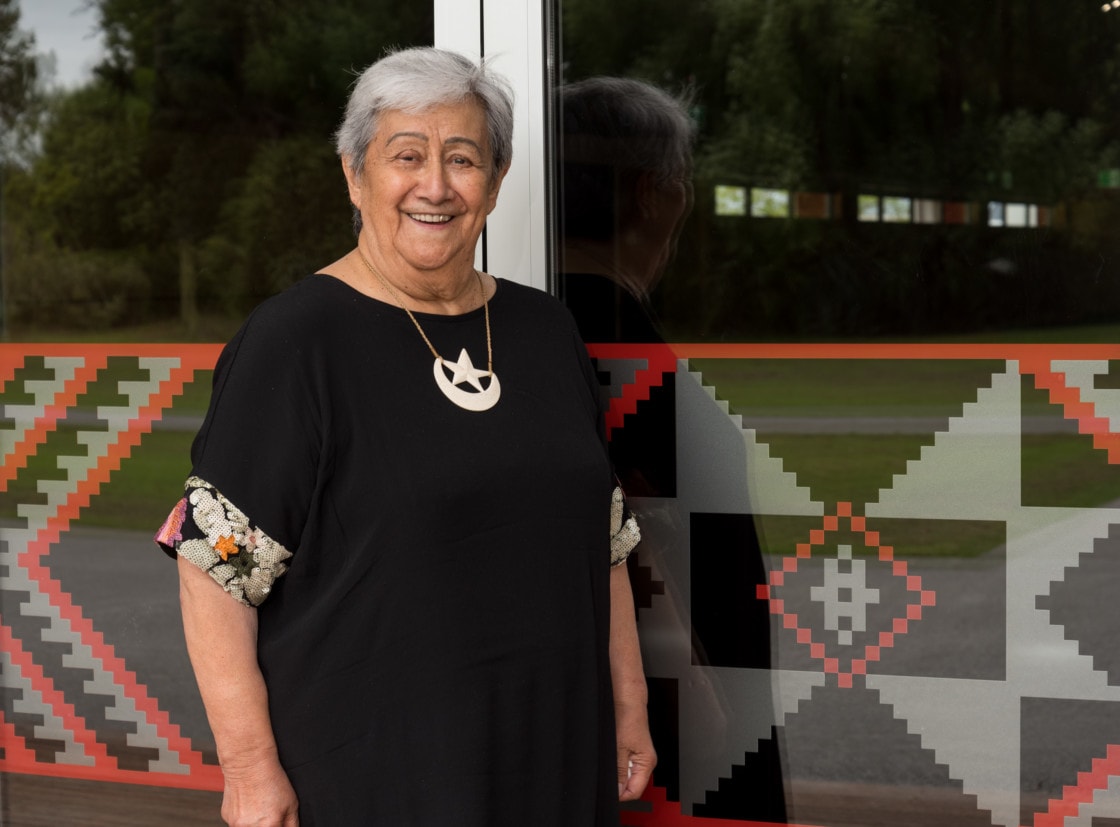Wednesday 28 October 2020Media release4 minutes to read
THIS IS AN ARCHIVED PAGE. The advice and information contained in this page may not be current and it should only be used for historical reference purposes.

Kahurangi (Dame) Aroha Reriti-Crofts, Ngāi Tūāhuriri, Ngāi Tahu says if you are 60-74, look out for your free bowel screening test kit in the mail – and do the test.
The National Bowel Screening Programme went live in the Canterbury DHB region on Thursday 29 October. Free bowel screening kits aimed at saving lives are being sent to the homes of Canterbury people aged 60 to 74 from mid-November.
People receiving the kits are being asked to use the test, complete the consent form, seal the tube and mail it using the pre-paid packaging provided.
In Canterbury 90,000 people will be eligible to take part during the first two years of the programme.
Dr Andrew Brant, Acting Chief Executive, Canterbury DHB says this is fantastic news.
“We anticipate that investigations prompted by returned tests will enable us to treat around 1000 pre-cancerous growths and 100 or so cancers in the first year. Finding and removing them at an early stage will dramatically increase people’s chance of a successful outcome.
“Screening is so important because many people would otherwise be completely unaware there might be a problem. For some people, returning their test sample could quite literally be a life-saver,” Dr Brant says.
Under the programme, those in the 60-74 age group with a birthday on an even date (2, 4, 6 etc – of the month) will receive a test kit on or near their birthday. People with odd-date birthdays will receive their test kit during the second year of the programme.
The test kit itself is about the size of a large USB stick, is easy to use and accompanied by clear instructions. It is designed to pick up tiny traces of blood in your faeces (poo) and to catch cancers before they become advanced and more difficult to treat.
Local GP and Canterbury NBSP Primary Care Lead Dr Sue Levin says it’s important to be clear that anyone with concerning symptoms such as sustained, unusual bowel movements or blood in their faeces (poo), whatever their age, should seek advice from their General Practice team.
“Whānau and friends also have an important part to play – in supporting and encouraging people to participate in the programme.
“For some people, bowel motions are a topic they find difficult to discuss. That’s why we need people who know them, to ask if they’ve received their kit and encourage them to use the test and return their sample straight away.
“Our Canterbury Health System is very focused on ensuring those who are most at risk receive the right information, so we’ll be targeting mature members of our community and in particular our priority groups who are Māori, Pacific Peoples and people living in areas of high deprivation,” says Dr Levin.
What now?
- If you are 60–74 years old, look out for the kit. When you receive it, use it, complete the consent form, attach the unique label that identifies the sample as yours and post it back straight away.
Put simply – this little kit could save your life.
- If you aren’t 60–74, tell the whānau about the National Bowel Screening Programme and encourage anyone you know in that age range to look out for their kit and to use and return it straight away – this little kit could save their life too.
- If, at any age, you have worrying signs or symptoms such as blood in your faeces or unusual bowel movements that continue for weeks – don’t wait for a kit – make an appointment to see your GP team or health provider immediately. Acting now could save your life.
ENDS
Additional information:
- New Zealand has one of the highest rates of bowel cancer in the world and 1200 people die from this disease each year. It is the second most common cause of death from cancer.
- The disease typically affects older people, which is why the programme is aimed at people aged 60-74. The National Bowel Screening programme is now being implemented in most DHBs and should be nationwide by the end of 2021.
- Since it began in New Zealand just over three years ago, the programme has screened more than quarter of a million people and detected more than 700 cancers early enough for successful treatment in 90 percent of cases.
- You can reduce your risk of developing bowel cancer by having a healthy diet high in fruit, vegetables and fibre, by exercising regularly, by not smoking and by maintaining a healthy body weight.
Tags Bowel ScreeningNational Bowel Screening ProgrammePublic health
Related topics
Public Health
Back to Health News

